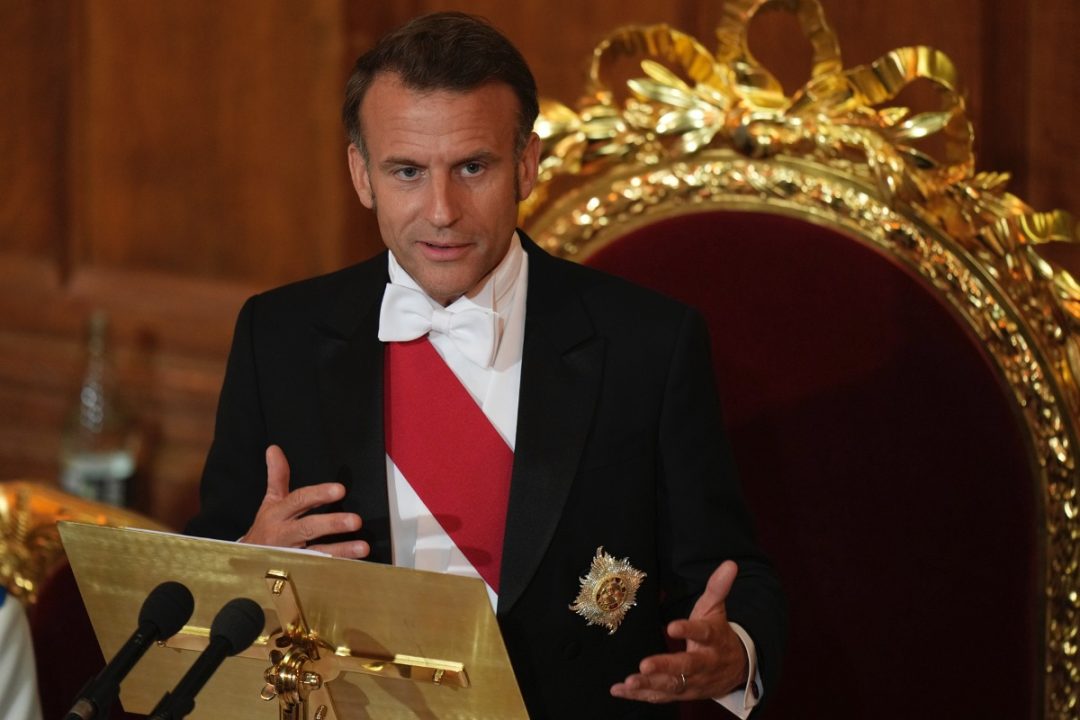
France lost its third prime minister in just over a year when the government collapsed Monday. This is the second government collapse in less than a year, and French President Emmanuel Macron is now facing calls to resign.
The latest turmoil was triggered when (now former) Prime Minister François Bayrou lost a parliamentary confidence vote by a 364-194 vote over a €44 billion austerity-plan proposal for 2026. The proposal included eliminating two public holidays and slashing government spending. Bayrou had only been in office since December 2024.
The Straw That Broke the Camel’s Back
France, the third largest European economy, is grappling with debt that exceeds revenue. “France’s debt-to-GDP ratio is due to climb to 116% this year, and annual government expenditure is approaching 60% of GDP,” the Wall Street Journal editorial board pointed out. The country’s national debt has gone from €2.2 trillion (equal to about $2.6 trillion) since before Macron was president, to €3.3 trillion this year.
French political scientist Frédéric Sawicki told The Conversation that the austerity proposal was the straw that broke the camel’s back. Critics say Bayrou mishandled revelations of a sexual-abuse scandal at Notre-Dame de Bétharram school. He also ignored climate and environmental issues in his general policy statement, and used the term “migrant flooding.” However, he continued:
The primary reason for [the government’s] failure lies in the president’s decision to disregard the new balance of power within the National Assembly elected in July 2024…. By appointing a prime minister of his choosing, interfering in the composition of the government and leaving it to them to cobble together a balancing strategy (one move to the left, two or three moves to the right and to the far right), Macron condemned it to failure.
Multiple polls over the last year indicate that the French people are tired of Macron and want him out. Left-wing lawmaker Mathilde Panot said on Monday, “The president does not wish to change policy, so we will change presidents.” She is urging people to take to the streets to exert pressure. Anti-Macron protesters have organized a national day of disruption, the Daily Mail reported:
Called Bloquons Tout or “Let’s block everything,” the general strike led by unions is expected to bring together some 100,000 demonstrators who will walk out of the office, boycott businesses, stage sit-ins and blockade streets. On September 18, several unions are also calling for more demonstrations.
Taking to the Streets
According to reports, high-ranking government officials are warning that the protests could devolve into an insurrection. French Interior Minister Bruno Retailleau warned that an “insurrectional climate” may come about, while Paris Police Prefecture chief Laurent Nuñez said he “expected ‘sabotage’ attempts and major blockades of ring roads, oil depots, train stations and airports.” The authorities are expected to deploy about 80,000 officers to handle the unrest.
A common perception is that France is too ideologically fractured to be governed. Per the Journal:
Recent polls show new parliamentary elections would lead to another fractured National Assembly, with no clear majority. The current Parliament is broken into blocs with budget priorities that appear irreconcilable. Macron’s pro-Europe forces, its centrist allies and a group of conservatives have 210 seats and oppose tax increases. A rowdy group of left-wing parties, including the far-left France Unbowed, hold 192 seats and oppose any cuts to France’s welfare state. And [National Assembly Deputy Marine] Le Pen’s party and its far right allies have 138 votes. They want to cut funding to the European Union.
The upheaval in France has the potential to affect support for Ukraine, and the Russians are watching closely what’s happening. France organized the Coalition of the Willing, a gaggle of 26 countries that promised a security force to Ukraine after the war. It has also pledged billions for weapons and financial aid. Bayrou vehemently supported Kiev, but his departure and the upcoming changes could change the dynamics of Ukrainian support










